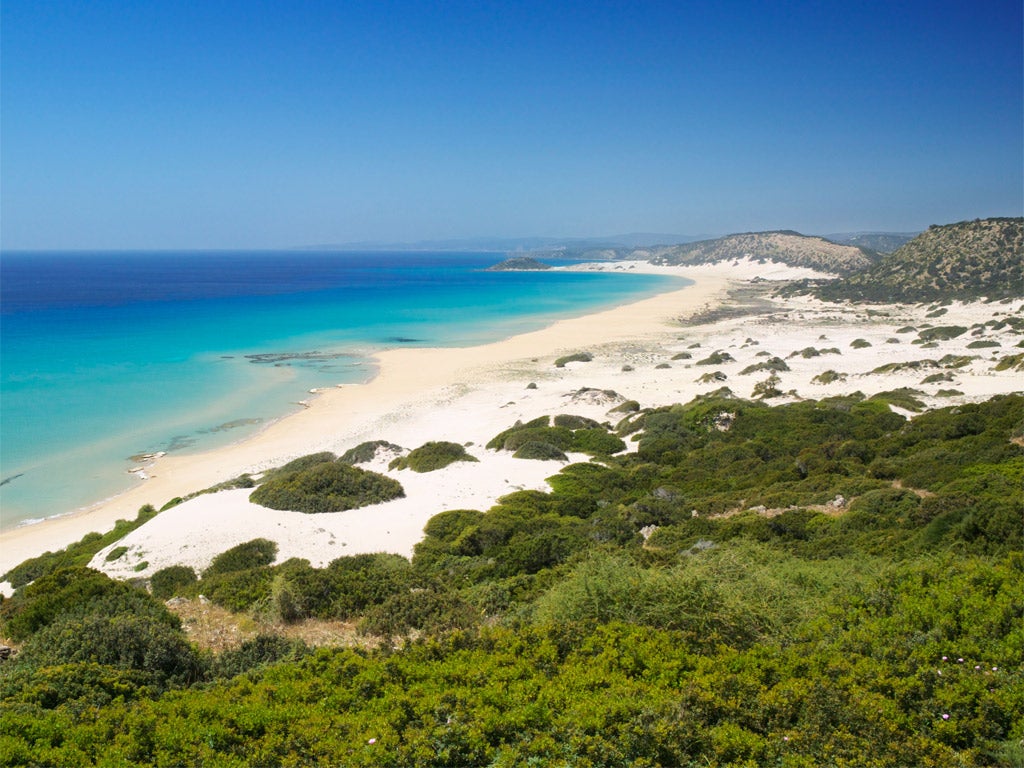Closing in on a criminal bolthole
Operation Zygos exposes the nine 'most wanted' men in Northern Cyprus. Paul Peachey reports

Your support helps us to tell the story
From reproductive rights to climate change to Big Tech, The Independent is on the ground when the story is developing. Whether it's investigating the financials of Elon Musk's pro-Trump PAC or producing our latest documentary, 'The A Word', which shines a light on the American women fighting for reproductive rights, we know how important it is to parse out the facts from the messaging.
At such a critical moment in US history, we need reporters on the ground. Your donation allows us to keep sending journalists to speak to both sides of the story.
The Independent is trusted by Americans across the entire political spectrum. And unlike many other quality news outlets, we choose not to lock Americans out of our reporting and analysis with paywalls. We believe quality journalism should be available to everyone, paid for by those who can afford it.
Your support makes all the difference.For any self-respecting criminal in search of a haven to hide from the police, Cyprus ticks all the boxes: a large British expat community, lots of sun, nice restaurants, and – north of the Green Line – no extradition treaty.
In a sign of the growing importance of the Mediterranean island as a bolthole for the criminal classes, details of nine "most wanted" suspects were circulated yesterday who are wanted in Britain for crimes including rape, multi-million pound fraud and drug dealing.
The nine are all believed to be living or travelling on the Greek-Cypriot southern part of the divided island where British authorities are working with their local counterparts to try to trace them. They include Martin Evans, 50, from Swansea who is wanted for drug dealing, and Paul Lockwood, 41, sought for allegedly raping a girl.
But the Serious Organised Crime Agency (Soca) accepts that there is little it can do about organised criminals who do not cross the border and remain in the northern third of the island – unrecognised by Britain but inhabited by Turkish Cypriots and a growing British community.
The details of the nine were released yesterday in a coordinated Operation Zygos in Cyprus at 10am involving local police, Soca and Crimestoppers.
A spokeswoman for Crimestoppers said that the Cypriots were bolstering their presence at the crossing between the two parts of the island to try to prevent any of the suspects from reaching the north after the launch of the operation. Authorities in the northern part of the island – which is recognised only by Turkey – are not part of the programme, raising questions as to its potential effectiveness. "There's no question that these are not the only nine individuals wanted by UK law enforcement who are in Cyprus," said a Soca spokesman.
The northern part of the island was home to Asil Nadir for 17 years after fleeing Britain while facing trial over the collapse of the company he headed, Polly Peck International. He was jailed last month for ten years but only after he voluntarily returned to Britain from northern Cyprus, fully expecting to be cleared of stealing millions of pounds from his own company.
Detectives also believed that the alleged gangster Sean Lupton fled to Northern Cyprus in 2007 with millions of pounds from a £53m cash robbery of a Securitas depot in Tonbridge, Kent, and has not been seen since. His family has claimed that he is probably dead.
The popularity of Cyprus has grown as the "Costa del Crime" in Spain has lost its lustre with the advent of the European Arrest Warrant which has sped up the extradition process. In 2010-11, 38 of the 133 people surrendered to the UK under the scheme were from Spain and only one was from Cyprus.
British police are hoping to build on the success of a similar "most wanted" scheme – Operation Captura – that it started in Spain in October 2006, which led to 49 out of 65 suspects being arrested.
Soca said earlier this year that Northern Cyprus was emerging as a growing centre for fugitive criminals along with Thailand and South Africa, which all have relatively large English populations. The deputy director of Soca, Martin Molloy, said: "Fugitives hiding overseas typically remain part of the criminal world, continuing to bring harm to communities locally and beyond. Soca and our partners are determined to ensure life on the run is intolerable for them, and that they are returned to face justice in the UK."
Join our commenting forum
Join thought-provoking conversations, follow other Independent readers and see their replies
Comments